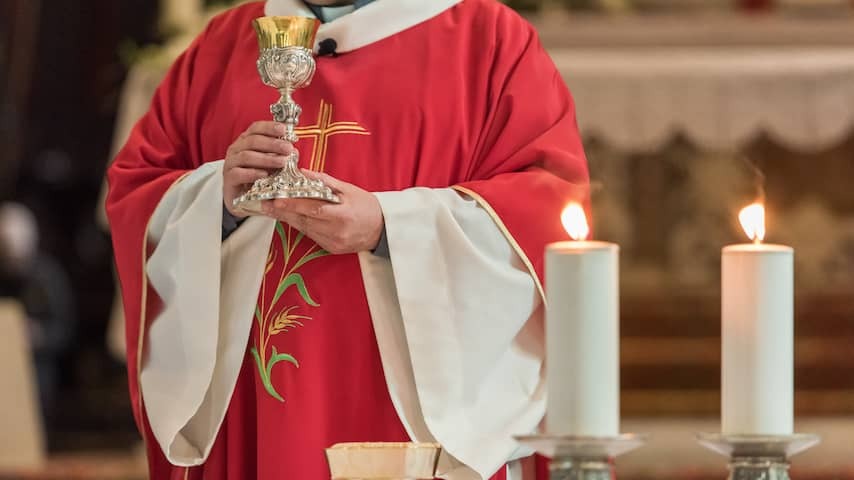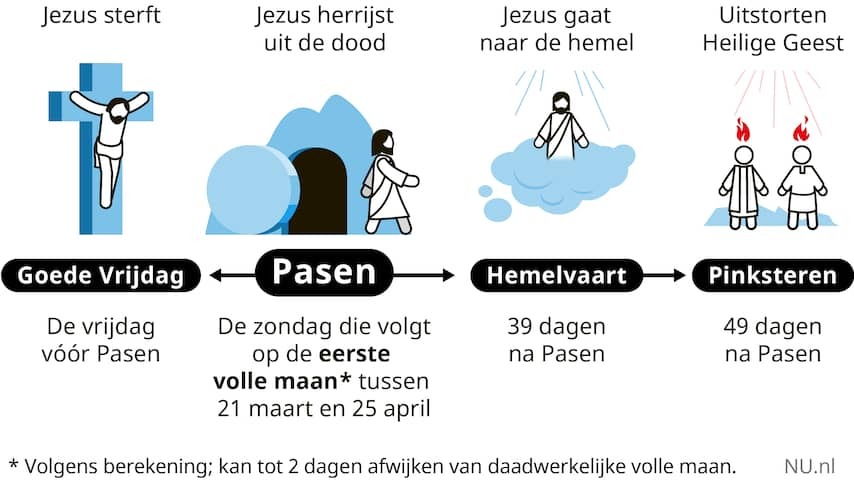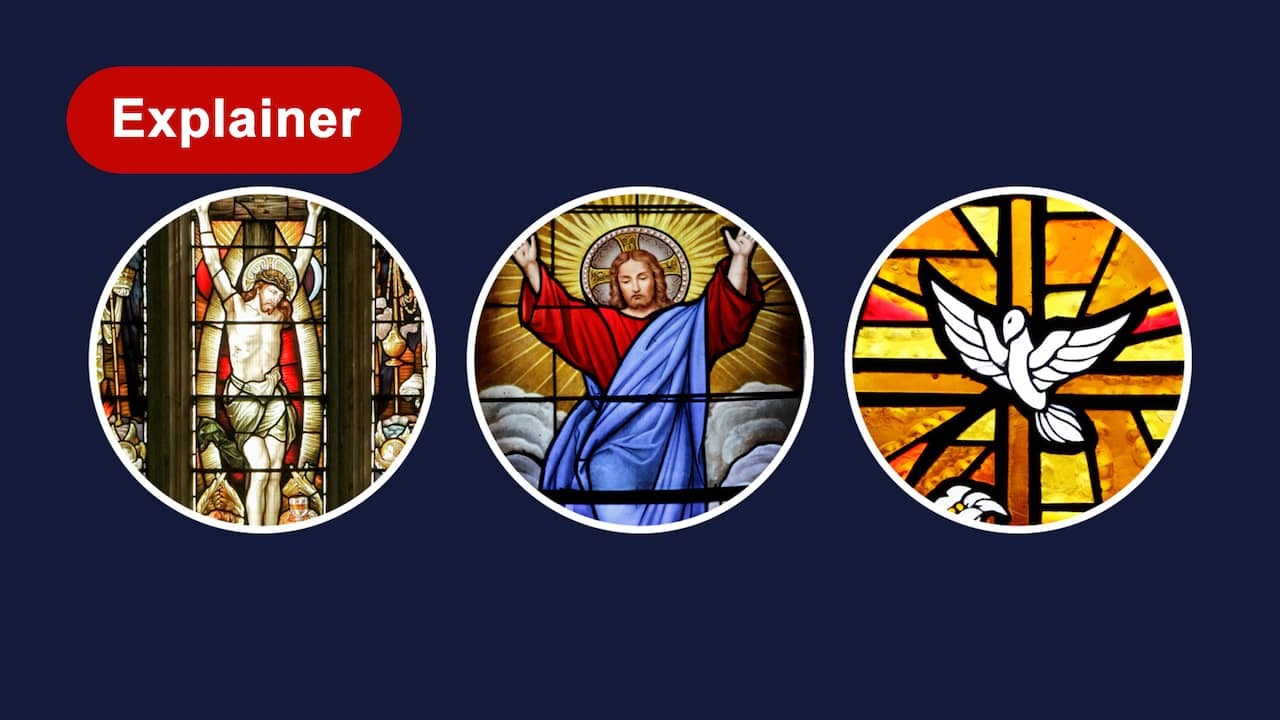
Pentecost is on Sunday and Monday: two official holidays. Many Dutch people are free both days, but not everyone knows the meaning of Pentecost (yet). What are we actually celebrating? A crash course.
Pentecost is the last Christian holiday in a series that is mainly about the life of Jesus. His life according to the Bible in a (very small) nutshell:
Pentecost is the day on which Christians believe the Holy Spirit (a kind of divine power) was received by the twelve followers of Jesus. This is also called the ‘outpouring of the Holy Spirit’.

According to the Bible, the twelve disciples were together on the first day of Pentecost. They were praying and thinking about how they could spread the story of Jesus now that he was no longer on earth, but they did not yet have an answer to that.
Suddenly they heard something that sounded like a heavy gust of wind, and they saw a kind of flames in front of and above them. That caused them to be “filled with the Holy Spirit”. In short, from that moment on they carried the spirit of God within them.
With that, the disciples could suddenly speak all kinds of strange languages. With those languages they were able to convert many people to Christianity, which they had not been able to do before. In one day, three thousand people would have become believers.
 1:34
1:34
What are we celebrating again with Easter, Ascension Day and Pentecost?
Because so many people were converted in one fell swoop, Pentecost is seen as the start of the Christian church. In the year 310, the day was established as the fiftieth day after Easter. Hence the name Pentecost: it comes from pentekonta, the Greek word for fifty.
In the Middle Ages it became a church holiday, although ‘holidays’ is a better word. In some places it was celebrated for three days, in other places for as many as eight.
Since the introduction of the Sunday Act in 1815, the Netherlands has officially had two Pentecost holidays. Then we also officially got two Christmas Days and two Easter Days, plus a Good Friday and an Ascension Day.
The fact that something is an official holiday does not necessarily mean that you are entitled to a day off. There is no law that stipulates that. It is usually stated in your contract or collective labor agreement.